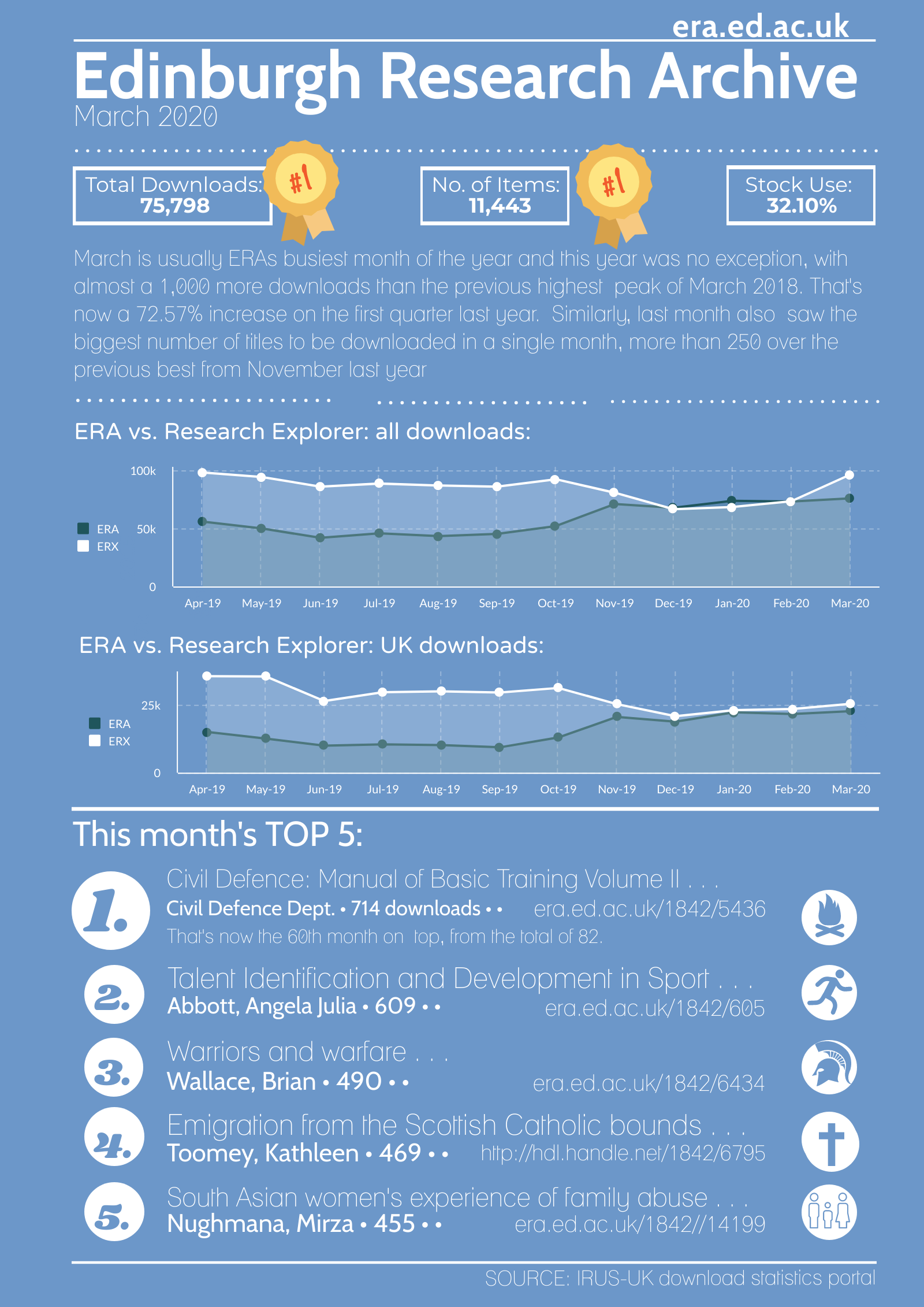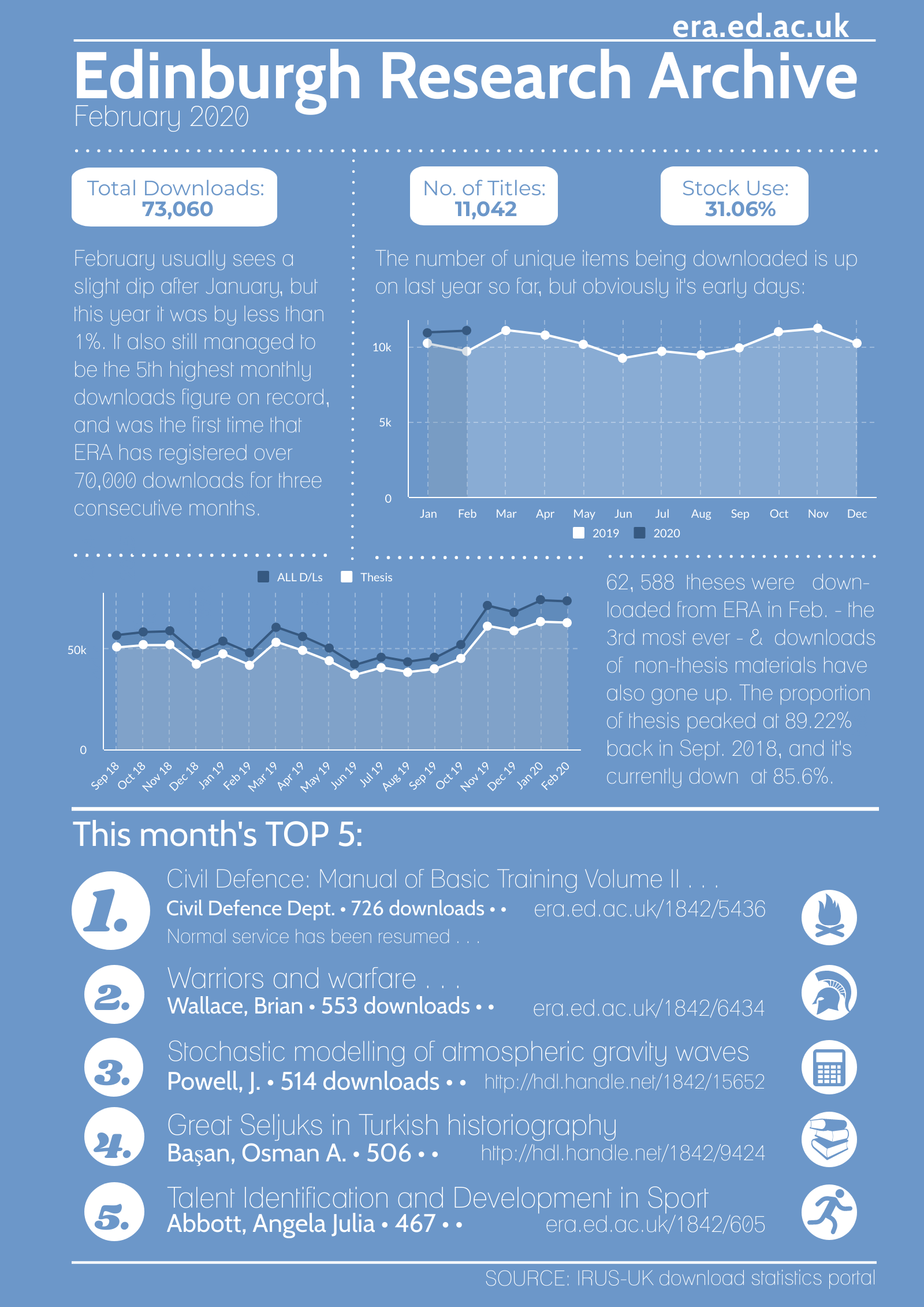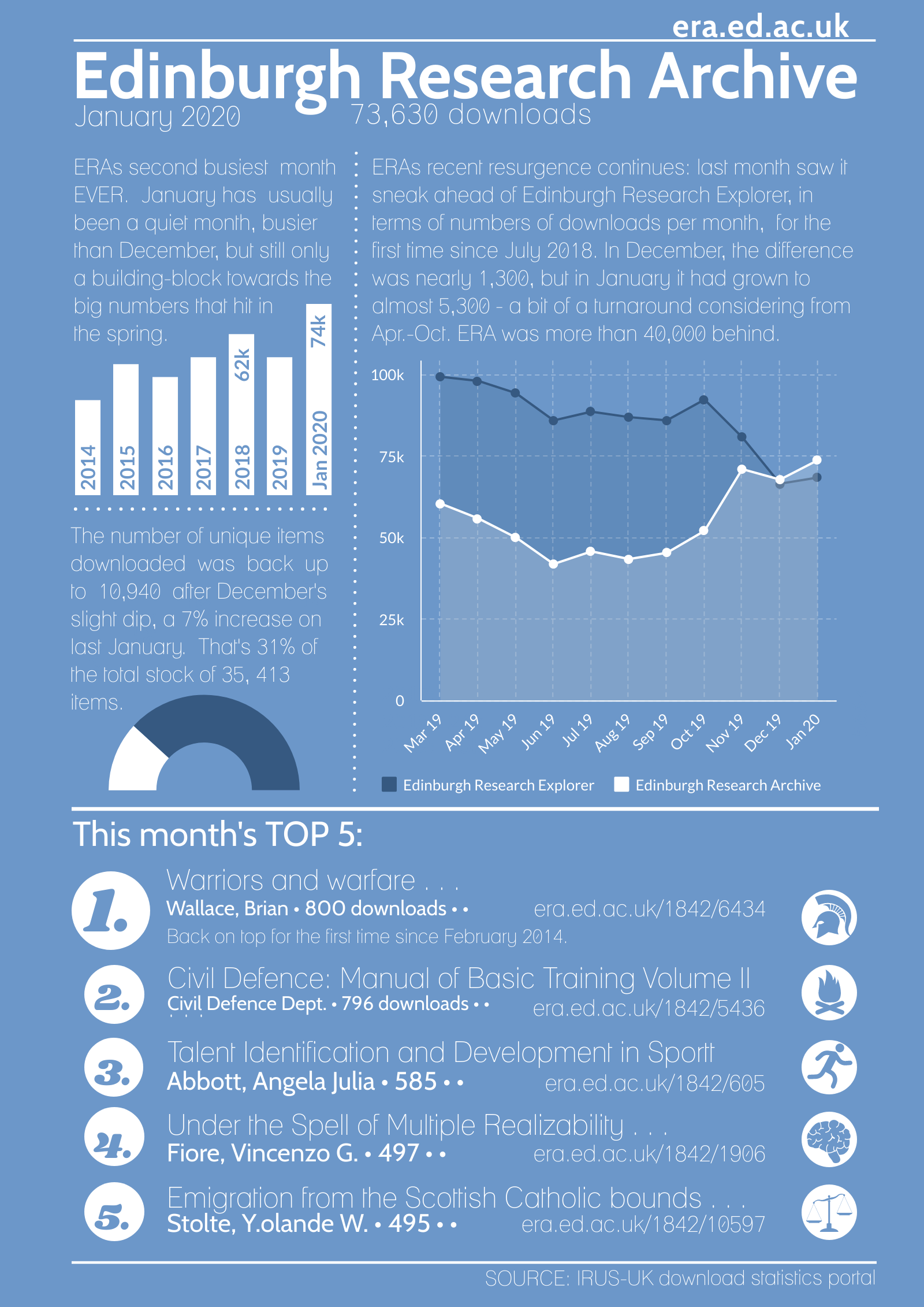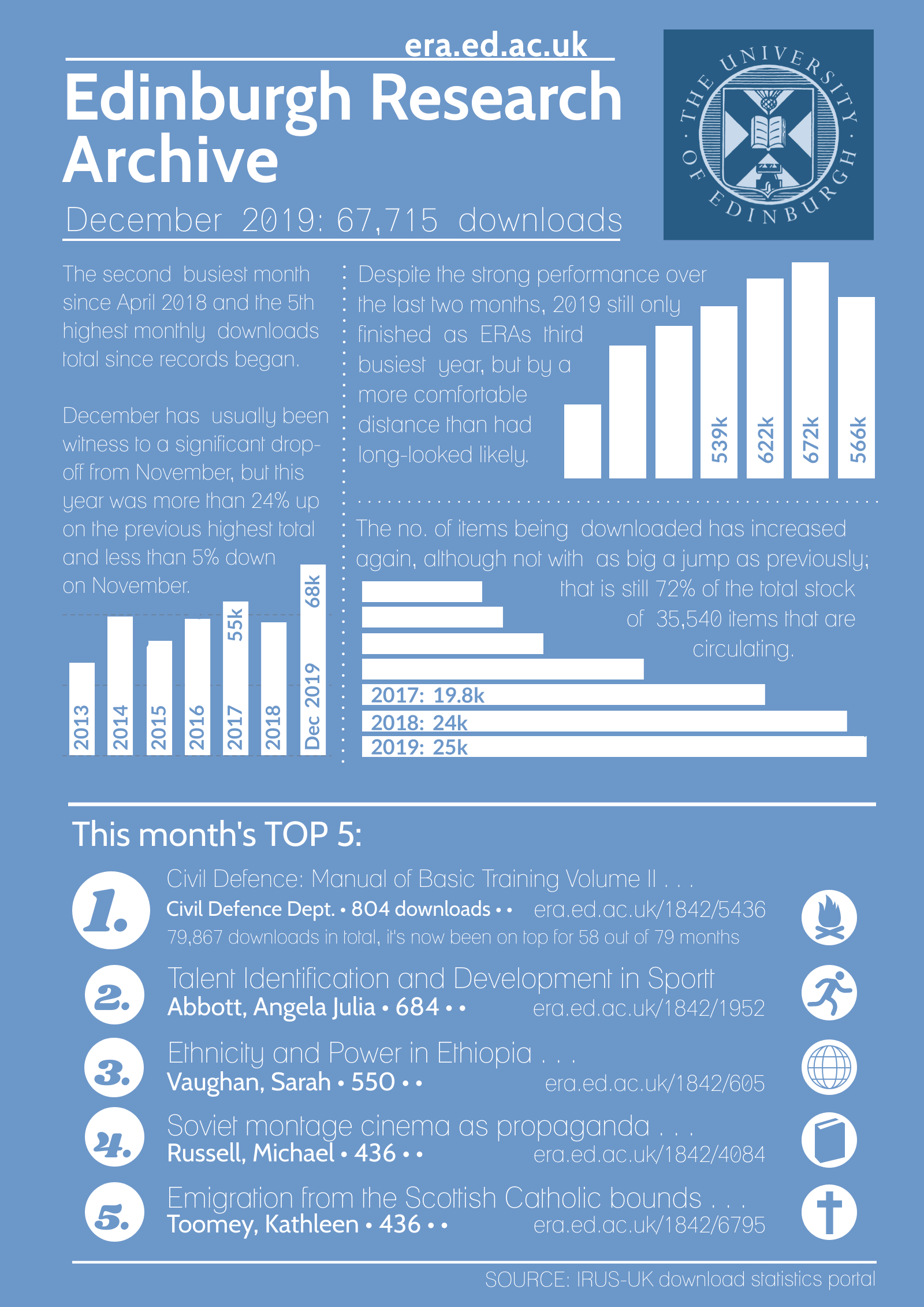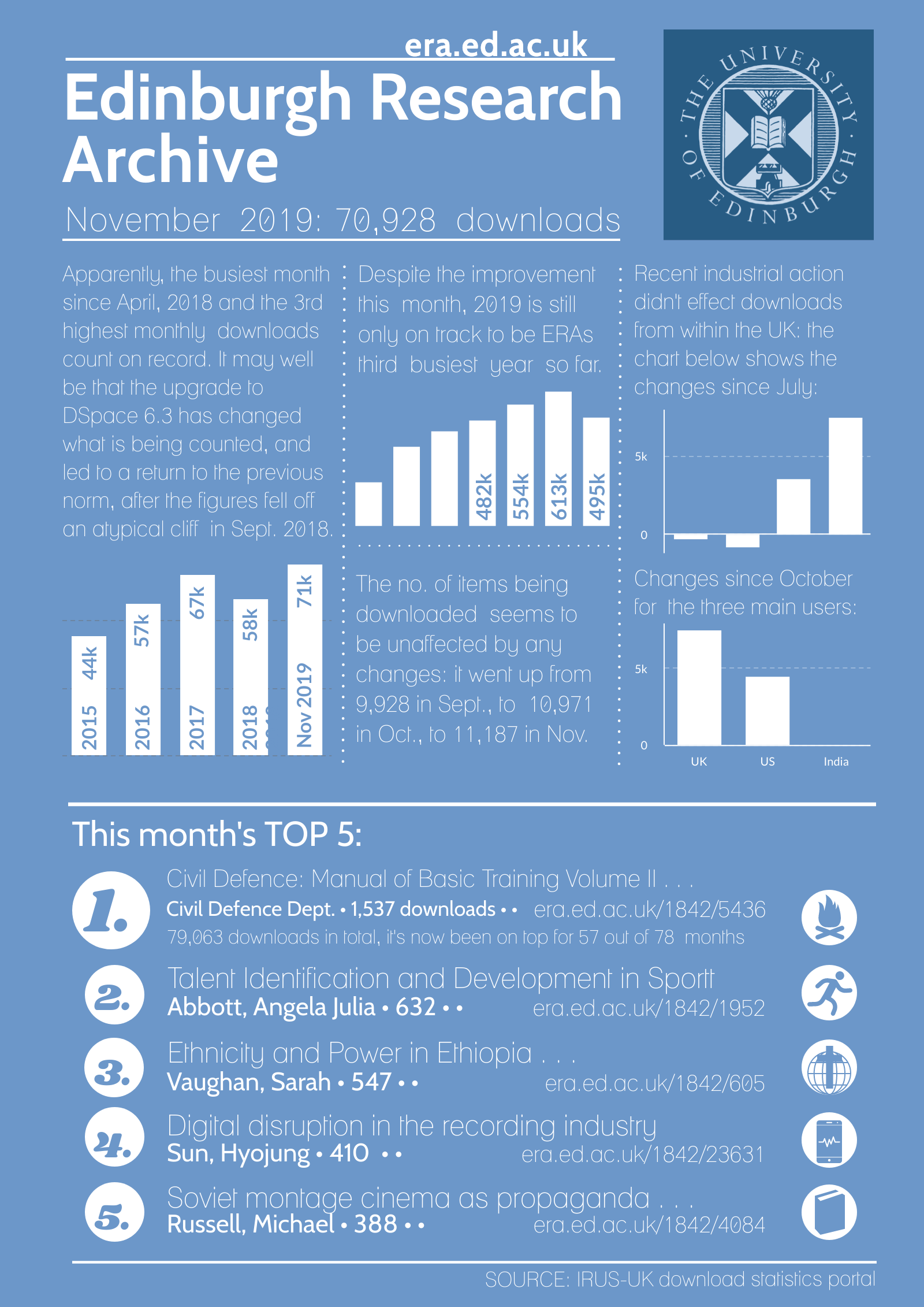Category Archives: DSpace
Edinburgh Research Archive Statistics: February 2020
Edinburgh Research Archive Statistics: January 2020
Edinburgh Research Archive Statistics: December 2019
Edinburgh Research Archive Statistics: November 2019
Beginning of a new ERA
We are pleased to announce that the Edinburgh Research Archive (ERA) has recently had a lot of work done to improve it’s looks, add new functionality and clean up some of our collections data.
For those of you who are not familiar with ERA it is is a digital repository of original research produced at The University of Edinburgh. The repository contains documents written by, or affiliated with, academic authors, or units, based at Edinburgh that have sufficient quality to be collected and preserved by the Library, but which are not controlled by commercial publishers. Holdings include around 27,000 full-text digital doctoral theses, 1,500 masters dissertations, and numerous other project reports, briefing papers and out-of-print materials. In October 2019 we recorded 223,000 visitors to ERA who downloaded 51,984 items.
Details of some of the improvements are listed below:
| Software upgrade | The DSpace platform was upgraded from version 4.2 to 6.3 | ||
| Face lift | Visual redesign and styling ERA to make it more appealing | ||
| DOI allocation | New functionality to assign DOIs to deposited items | ||
|
New domain |
New URL => era.ed.ac.uk | ||
| Fix subject terms | Change scanning metadata information to be stored in dc.relation.ispartof and not dc.subject. |
✔ |
|
| Log-in expiry time | Set login expiry time to an hour. |
✔ |
|
| Date-format | Go from yyyy-mm-dd to dd-mm-yyyy |
✔ |
|
| UX improvements |
Move Edit Item button up, to the top of the bar, customise drop down list to have most used elements at the top. |
❌ |
|
| Default language boxes | Give “en” as default to language boxes. |
Of all the new improvements I am most excited about the new functionality to assign Digital Object Identifiers (DOIs) to items deposited in ERA. All new items will be automatically assigned a DOI, and we will investigate how to do this for the rest of the nearly 35,000 items already online.

